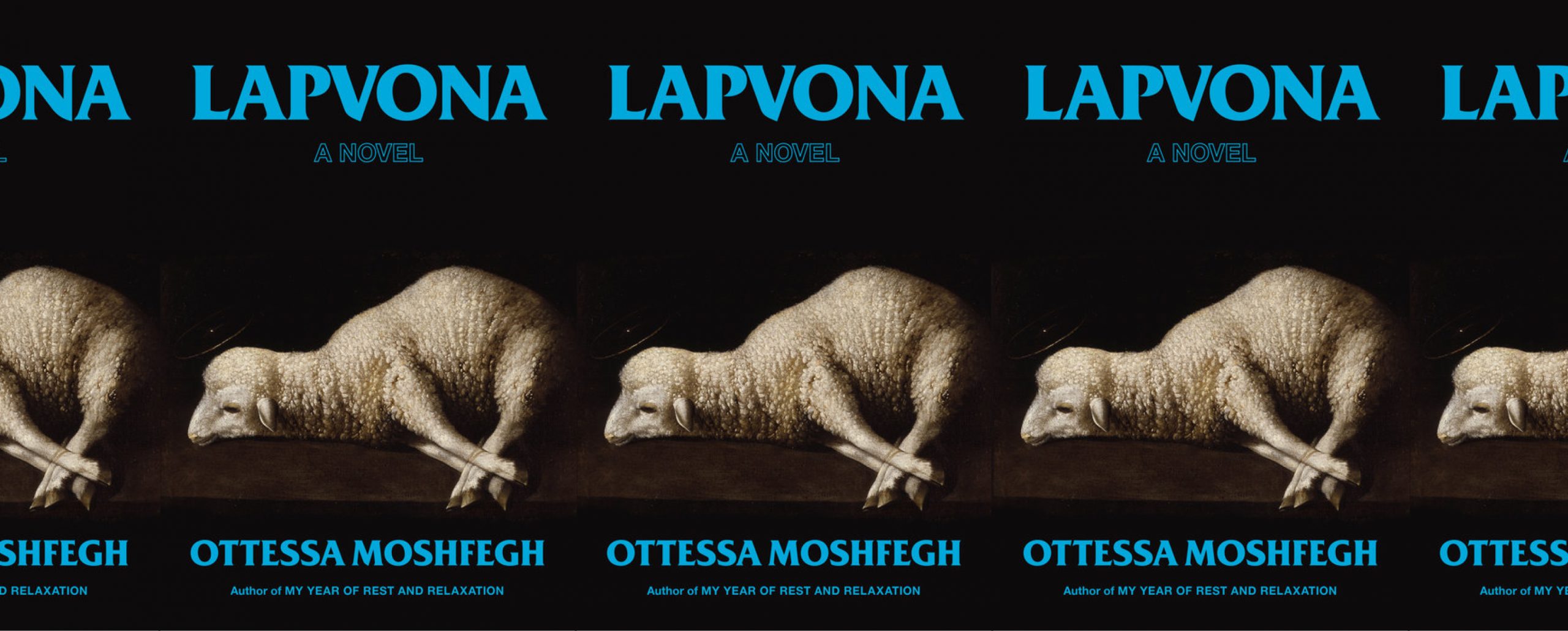Lapvona’s Christian Narrative

Lapvona, Ottessa Moshfegh’s newest novel, follows Marek, the disabled son of a shepherd in the medieval village of Lapvona. Yet Lapvona, out today, is not a historical novel so much as an allegory—while the structure of fiefdom and social standings mark it as believably set in the Middle Ages, Lapvona is not a real place. Full of occult and supernatural happenings, Lapvona’s world is violent and grotesque—characters die in short, matter-of-fact sentences—and is so twisted to seem completely foreign at times. Almost everything is different from our world, save one curious element: Christianity.
Even in a medieval setting that seems invested in its alternate coordinates—no countries or places are named; the major distinction between places is whether they are “North” or “South”—the narrative of Christ is perpetual. Villagers and lords alike turn to Christianity to make their lives meaningful, from birth to death, drought to famine, taxes to misfortune, seasonal change to stasis. All these things, they think, have been ordained by God, and are therefore ripe with meaning. And Marek is possibly the most pious, or the most superstitious—the difference between the two is marginal in Lapvona’s world—of all the characters.
When we first meet Marek, the “crooked boy,” he is praying for the soul of a bandit. “God forgive you,” he says, opening his eyes just in time for the pilloried bandit to spit on him. Yet Marek “knew not to flinch, as that would show disgust, and God would judge him. Instead, he bent down and kissed the bandit’s head, then licked his lips to taste the salt of the man’s sweat and the rancid oils caked into his reddish hair.” It’s a funny adaptation of turning the other cheek: Marek accepts not just the bandit’s spit, but his sweat and oily hair too. The fear of God’s judgment, and the fear of the Devil, loom large in Marek’s life.
But for Marek and for the people of Lapvona, this religiosity is less an articulation of faith or devotion and more of narrative concern. Or, more particularly, faith manifests itself in a particular concern for the narratorial. For the characters in Lapvona, the central questions of faith are simply questions of what everything adds up to. Who am I, and what am I doing here? Why do bad things happen to me? How can I keep living like this?
Christianity gives their concerns for meaning an outlet: they see things as blessings and curses, but more than that, they see things as preordained by a divine figure. More materially, religion acts as blinders for the villagers—a limited plot that only allows them to see certain possibilities. The narrative of Christianity is, of course, a camouflage for a corrupt lord, Villiam, and his odd tendencies. He adopts Marek after the death of his own son—a death that occurs by Marek’s own hand—and keeps Marek sheltered during the drought. While the villagers starve and die, Villiam lives easily on his hidden reservoir of water, his secret gardens that stay lush with fruits and vegetables. We get a firsthand look at how easily Father Barnabas pacifies the villagers with stories of how Christ has blessed Villiam: “The little gift of religion Barnabas allowed the villagers on Sundays—the church gave out drops of wine and little oats for the Eucharist—was enough to fool them into accepting their poverty and enslavement.”
Father Barnabas is not sinister so much as lazy. He “loved not the Christ but himself and the thrill of keeping people in line. He liked wearing his habit, and he liked the preposterous authority that his position granted him. Since his assignment in Lapvona, he had not given any real sermons. He simply translated Villiam’s rule into language that sounded vaguely religious.” He knows that “the bandits only raided the town when there were rumors of villagers hoarding foodstuffs after a plentiful harvest. They didn’t understand that their crops were not taken as necessary taxes, but were simply sold for profit so that Villiam could continue to live so well and rule them.” The boring story—of taxes and political control—is far less appealing that the supernatural one of Christianity.
This concern for Christianity in the midst of an unreal novel makes one of Lapvona’s central scenes even more resonant. The turning point of the novel occurs around Christmastime: both Villiam and Father Barnabas are unable to remember the story of the Nativity. It’s a major blunder, one that nearly exposes their shallow and needlessly cruel grip on the village. At dinner with one lucky family from the village below, Villiam asks Barnabas to tell the nativity story: “Villiam had always enjoyed the priest’s summary of the Nativity. It had been one of the few stories Barnabas had actually remembered from seminary: ‘On Christmas Eve, Christ’s parents went to Bethlehem to be counted in the census. But they had no money to pay for a proper bed, so they took refuge in a horse stable, and that’s where Jesus was born.’” Barnabas peters out here and is “flustered” when pressed for more. He “couldn’t remember any details of the story, and the more he tried, the more flustered he became. Finally he cleared his throat: ‘The two of them traveled to Bethlehem, of course, and we all know what happened there,’ he said, lifting his cup. ‘To Christ.’”
Barnabas forgets the Christmas story, but many of the villagers never knew it to begin with. In Marek’s past life with his father, Jude, Christmas is not a time of feasting, but of fasting: “Past Christmases in the pasture had been spent fasting. The holy days were reserved for silence and introspection. Jude and Marek didn’t know the story of the census, or that Christmas marked the birth of Jesus. Jude had thought that the reason Jesus was so revered was that He had been so brutally punished by soldiers on Christmas. This is what inspired him: his passion was brought on by torment.” It’s clear that the Passion and Nativity narratives have gotten mixed up here, and what remains is an odd, amalgamated story inflected with deep sense of superstition. But Jude and Marek’s confusion of the Christian story makes its purpose clear—the narrative serves to pacify the villagers, but it also serves to make their lives meaningful. If Christ’s torment, His hunger and longing, are what resonate with Jude and Marek, then that is what they will keep from the story. After all, Jude’s difficult life has little room for feasting and celebration. What he needs from the Christian story is not some absolute truth but rather some kind of purpose for the day at hand. A narrative is a form of sustenance, and this narrative is prone to morphing and changing to the needs at hand.
Perhaps it’s not particularly shocking that fiefdom and Christianity are intertwined in Lapvona. After all, centuries of human history show their intimate connection. Yet the narrative spinning and morphing of Christianity in Moshfegh’s novel show the power of stories to create purpose, to make life meaningful. Marek and the rest of Lapvona flatten the Christian story—morphed and forgotten and corrupted, the Biblical narrative is not so different from any other system of patronage. In this framework, what is God but another lord, corrupt like Villiam, demanding your time and effort and goods, demanding to be pacified?



